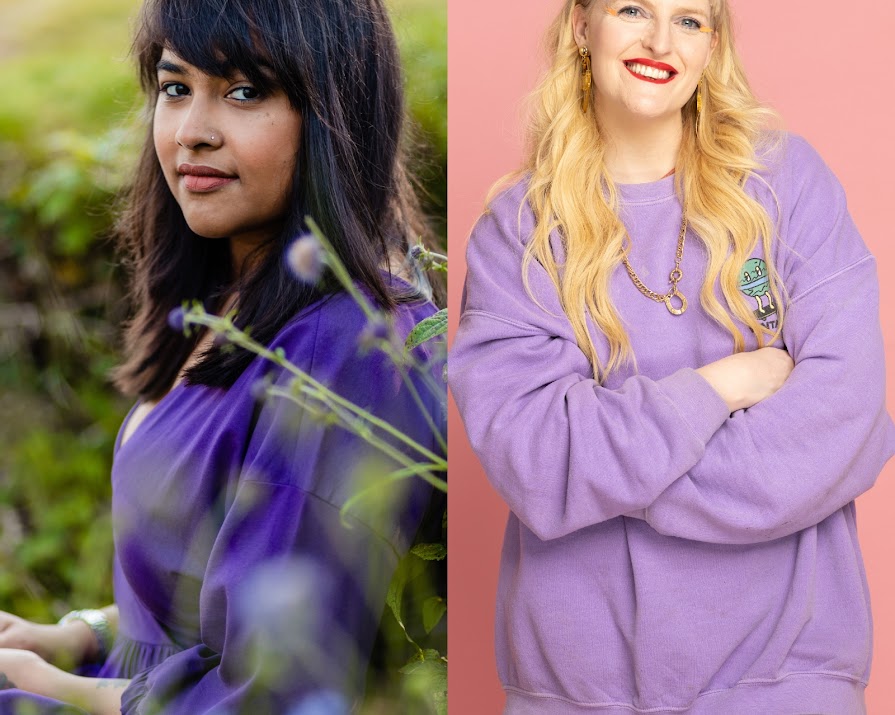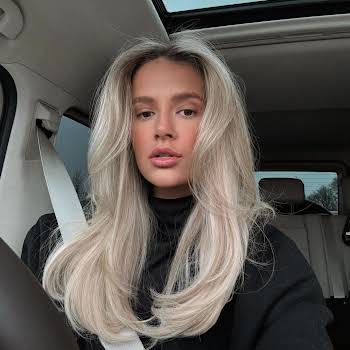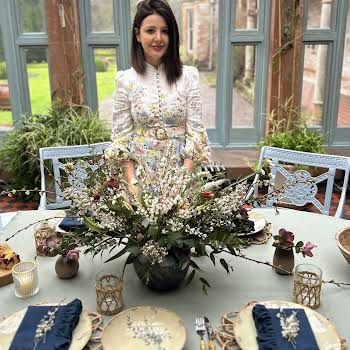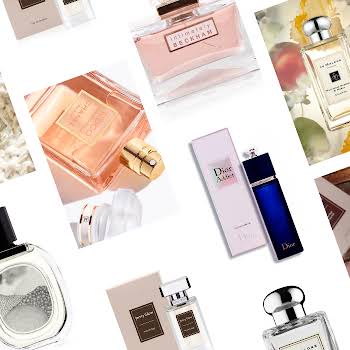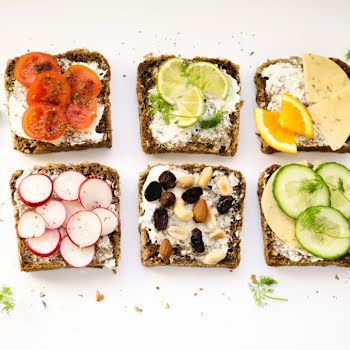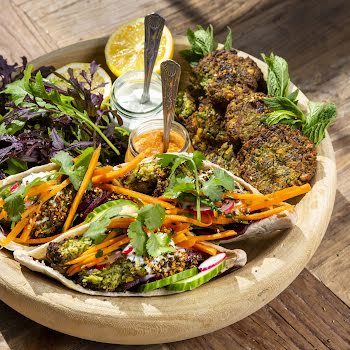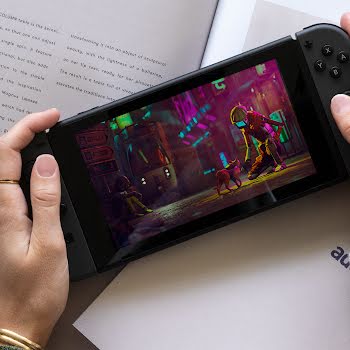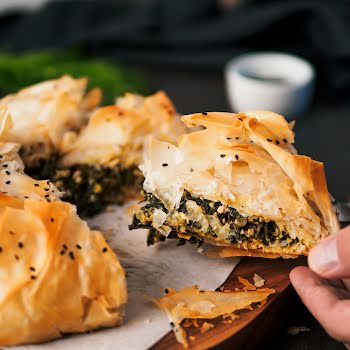Authors Disha Bose and Sophie White on losing friends and the pressures of social media
By Sarah Finnan
16th May 2023
16th May 2023
Ahead of their event, No Illusions, at the International Literature Festival Dublin (ILFD) this Friday, we caught up with authors Disha Bose and Sophie White to discuss everything from female friendship to the pressures of parenthood and how social media has influenced both.
Disha Bose, author of Dirty Laundry
Female friendship is such an interesting and nuanced topic, what made you want to write about it?
I suppose I’ve always been interested in female friendship, the politics of it and how these historical share experiences affect our future selves. I moved around a lot as a child – my dad was in the Indian Air Force which meant that we never really lived in any place longer than two years – so it was very difficult for me to develop lasting friendships and I suppose that’s where it kind of stemmed from for me. I don’t really have old friends. Every new place I went to, I had to start all over again. I just find that interesting because you’re always kind of on the sidelines then. Other people have their own histories and their own connections and friendships, and you’re trying to kind of fit in and see what works. It can be awkward and painful. But then, eventually, you know, you figure it out and you see who you connect with/ Hopefully anyway, I mean, that doesn’t always happen and the older you get, the more difficult it gets fit into that group. But that’s always interested me, the politics of female friendship.
The idea of Instagram vs reality is a big theme here, what drew you to that as a topic? Do you think it’s easy to pretend on social media?
From a consumer point of view, it’s very easy to get confused with social media. When I wrote Dirty Laundry, I was actually a new mother at the time and we were in lockdown, so we were cut off from family and our support system. The internet seemed like the most viable option for support and help and information and all of that. So, along with the Facebook groups and the WhatsApp groups, there was also Instagram and mommy bloggers as they’re known. I found myself spiralling because I was constantly comparing myself with these images that were portraying a certain story about motherhood and parenthood. It just seemed completely unachievable, and I thought I was doing something wrong. I was constantly judging myself and we were already isolated. I remember just going through months of self-doubt, and worrying that I was doing something wrong. I was able to move all of that into a book, thankfully, but I think there are a lot of people who are not able to distinguish online pretence from reality and that’s where it can get dangerous. There’s so much information and the resources that are available on the internet are just astounding. I think that’s what separates us from previous, older generations because they didn’t have that kind of information available to them. It’s been amazing and very helpful for me as a millennial parent, but it’s important to be able to filter out what affects your mental health and be able to recognise signs of what’s not real.
Without giving anything away, Dirty Laundry centres on a murder in a small Irish town. Are you a true crime fan or what made you want to write a book in this genre?
Yeah, domestic thrillers have always kind of been the genre that I’ve been drawn to. I read them the most. I also love watching thrillers and domestic dramas on TV… but I never saw myself as a crime writer because there aren’t a lot of people of colour writing in this genre. So I wrote lots of different things in the last decade or so, but then eventually, I think this idea kind of came to me and I knew that I had to work on it. One of the central characters is Indian, which is also not very common. So yeah, I feel like I’ve kind of gone with what I love reading or consuming.
Oftentimes, when people hear the word ‘friendship’, there are automatic positive connotations but your book also deals with the toxic side of things. Why do you think we accept bad behaviour from friends?
I suppose it’s like we were talking about before, it’s about past histories. I think we’re just more forgiving and accommodating with our friends. It all comes down to wanting to be accepted, you know, You think, ‘Once I have my tribe, these are my people. If I speak up against them, then I probably won’t be accepted anymore. I will be kicked out.’ It’s just wanting to be accepted by the people you admire.
Social media is a central theme here – what effect do you think it has on parenting and friendship?
It has a lot of negative effects along with the positives – mostly because it’s so hard for people to differentiate between reality and what we see online. Everybody projects themselves differently online. If I’m drinking a coffee and I take a picture and post it online, that cup is not going to look like that in the next minute or so, but on social media, it’s frozen in time and people think that’s what real life always looks like for you on a sunny day… sitting in the park with a coffee. It’s just simple things like that. Every time I post something online now I think about those things and how I’m projecting myself to the world. I think it’s just about understanding how we consume social media and having more awareness around it.
I read somewhere that your husband insisted you watch Father Ted before moving to Ireland… has that informed your view of small-town Irish life?
When I first watched it, I couldn’t have imagined how true to life it really is until I moved here! We lived in Dublin for a while and it didn’t seem the same, but now we’re in a small town near West Cork and I finally get all the jokes!
As an author, do you use social media much to interact with fans/plug your book? BookTok has really taken off in the past few years, is that something you capitalise on?
Definitely not BookTok, I have no experience with it, and I feel like I’m too old to start something new! But I use Instagram – more for informing people who are interested in the book and also to update people on the writing process. I’m fairly active on social media and I think it’s an interesting tool. It’s an easy way for artists and writers and creatives to express themselves and promote themselves, which was, again, something that wasn’t available in the previous generation. So why not use it? I didn’t use social media for selling my book though, I went to the complete traditional way of submitting to agents and then my agent did everything else. But social media definitely helped me connect with other writers which has been very helpful. I have a group of people – fellow writers – who I’m fairly close with and we can talk about writing and editing and what’s happening and what’s unfair and what’s reasonable. I think, previously, everybody was kind of isolated from each other, whereas now, we’re all connected and that’s powerful.
Finally, you’ll be speaking at an event called No Illusions at the International Literature Festival Dublin this year, tell us about that. What can attendees expect?
It’s a talk between myself and Sophie White. I think it’s going to be about social media and friendship because both of our books touch on similar themes. So we’ll be covering topics such as female friendships, how we project ourselves on social media, and, you know, our personal awareness around using social media. I’m actually reading Sophie’s book at the moment and I’ve noticed so many similarities between My Hot Friend and my book, Dirty Laundry – even though the genres are very different. We both sort of tackle social media and the way one presents themselves online versus what reality is because there’s a very fine line between the two. And you know, social media is just so easily accessible now that it’s very difficult to differentiate between the two. We’re always on our phones, and we look up and it’s real life but when we look back down, we’re sucked back in again.
Sophie White, author of My Hot Friend
Female friendship is such an interesting and nuanced topic, what made you want to write about it?
Actually, a few years ago – back in 2018, I think – I wrote a piece for IMAGE.ie about the life-changing act of breaking up with crap friends. I was just very interested in how deeply friendship breakups affect us, but how unacknowledged that pain is. And so I wanted to write this piece, but I was like, ‘Does everyone feel this way? Or is it just a me thing? A me problem.’ So I put on my Instagram that I was writing an article about female friendship breakups and would anyone like to talk to me anonymously… and the outpouring of responses I got was wild. And I was like, ‘Oh, my God, this is definitely a real thing.’
So, I talked to a number of women anonymously and they all described the same things you go through in a romantic breakup, only this time it was with a friendship. One woman told me that she had been crying on her way to and from work for weeks, and even though she had been the one to do the breaking up because it had been necessary, she was still mourning the friendship. Another woman talked about how she had kind of gotten iced out of her school WhatsApp group, and how that just cut her to the bone, how hurtful she found it. All of these women talked about how isolating it was because you know, when your friend breaks up with their partner, you all rally around and them… there’s a social script on how to deal with it. Whereas if you break up with a friend, nobody has that kind of roadmap, it doesn’t exist. I thought it was really weird that I could practically count on one hand how many books or films we have that depict this. Bridesmaids was definitely a source of inspiration because that was a book that was really ostensibly about a female friendship changing. There was a love interest, but it was very secondary. Can’t Cope, Won’t Cope by Stefanie Preissner is another one that was really solidly about female friendship. And I loved that but I felt like this was kind of underrepresented.
I’m obsessed with rom-coms and all of my other books could kind of be classed as rom-coms but I really wanted My Hot Friend to be like a platonic rom-com. So much of the time with films and books, the central relationship is a romantic one, but oftentimes, you’re more invested in the friends. They’re the funny ones, you kind of enjoy their scenes more. So that was an inspiration for this book. There’s also a podcast I absolutely love called Celebrity Memoir Book Club and there was an episode on their Patreon around a year ago where Claire, one of the hosts, was talking about how she’d broken up with a friend. She’d kind of lost all of their mutual friends in the friendship divorce and she was going to a wedding later that year that the ex-friend was going to be at. She was talking about how she wanted to have this kind of revenge life to show her friend what she missing… very much in the kind of trope of a romantic breakup. So, I was very inspired by that as well and wanted that for my characters in this book. For them to be trying to live their best lives without their best friends, you know.
Your book deals with female friendship in terms of very modern things, like WhatsApp, influencers and podcasts. What effect do you think social media has on friendships?
I think it’s a really interesting one because I sort of feel like – maybe this is just my totally insecure personality – but I always feel, even when we’re growing up, we have this fear of, ‘Is everyone hanging out without me?’ And now we have this weird thing where with social media, you can actually see that everyone is! The thing is, people may be hanging out without me, and obviously, that is their right, but it doesn’t necessarily mean that they hate you. Sometimes our brains can do a real number on us and we can cook that up into a huge rejection. So I think that’s a really strange aspect of friendship now. Then there’s also this other type of performative friendship that definitely takes place on social media now. If you’re at the stage of life where you’re very lonely, and you don’t have, like, what you would like to have in terms of friends and a social circle, it can be really hard to watch these, like mini trailers people are putting together of their nights out or even just them meeting up for a coffee. When you’re really lonely and isolated, that can really hurt. In terms of the podcast, that was quite meta because in real life, I host two podcasts with two of my best friends but I think we still haven’t explored podcasting that much in media. I’m such a fan of podcasts and I find myself thinking that I’m friends with these people that I listen to… I find it unbelievable that they actually don’t know me when I feel very connected to them! So I was interested in exploring that kind of parasocial relationship. It was also interesting to explore the idea of friendships that were being monetised and commodified through podcasts and what effect that can have on two people.
Oftentimes, when people hear the word ‘friendship’, there are automatic positive connotations but your book also deals with the toxic side of things. Why do you think we accept bad behaviour from friends?
That’s very interesting. I think it’s because friendship isn’t modelled for us to sit our friends down and explain our needs and expectations for the relationship. I think that most people would find that really weird if you did that. Socially, friendships have always been demoted as being somehow less important than romantic relationships. I think that’s really wrong and strange, because oftentimes we will, through our lifetime, end up spending much longer in a relationship with our friends than in any romantic relationship. My longest friendship is over 30 years long; I’ve been with my husband for 16 years so I know who I’m saving in a fire! But it is still considered odd to sit down with a friend and be like, ‘I actually feel really disrespected by this thing you did.’ Whereas, working through romantic relationship problems is way more normalised. It comes back to the social script just not really existing here and also, one of the biggest things that I think we fear is being seen as needy. That probably ties in with accepting the bad behaviour of friends, because you don’t want to seem needy or high maintenance.
These women are at a point in their lives where the friendships that defined their youth are increasingly difficult to hold on to… how do you accept when a friendship has run its course?
I do think friendships can survive your life diverging. You know what I mean? Like, with my school friends, we obviously all lead very different lives, but it doesn’t matter to the friendship; the friendship is still very deep. But I suppose if your lives have diverged and your friend doesn’t even really show an interest in what you’re experiencing, or it becomes a real one-way street where you’re always texting them first, you’re always asking them about their life but you’re not getting any of that back, that’s a real sign that it’s kind of one-sided.
As you touched on before, there is so much out there on the breakdown of romantic love, but very little when it comes to platonic love. Do you think that’s changing? Are people talking about this more?
100%! When I’m working on a new book, I always try to include something that I feel is the overarching kind of cultural conversation about how we’re living today. My book, The Snag List, was all about kind of ‘best life living’ and how sometimes the very wealthy can kind of build up a barrier between them and hardship… it was somewhat of a social commentary, you know. All the characters in that book had moved into this fully polished, automated, faux town called Monterey Valley where everything was done for you. I’ve always been kind of interested in what the cultural conversations are, but it’s hard to anticipate what they might be. I’ll usually gather the seeds of an idea from different things, articles I’m reading or books I’m writing, but you can’t always know that you’re going to coincide with a kind of a wave of interest. Elizabeth Day’s new book, Friendaholic, just came out which is a non-fiction book about friendship and then in the last few months, there have been articles in The New York Times about friendship breakups. So the whole time I was writing this book, it was kind of like, ‘Oh, yes, I feel this is really good.’ It really gave me a sense that like, we are all talking about this, and there’s a real appetite to read about it. So I’m really delighted… sometimes that stuff aligns and sometimes it doesn’t. But it feels like it’s really aligned with My Hot Friend in a big way.
Tell us about No Illusions, your talk at the International Literature Festival Dublin this Friday.
Well, it will be Disha Bose and I in conversation with Louise McSherry. I think anywhere that Louise is, there’s always going to be a really interesting, honest, reflective conversation, just because of how she is. Disha’s book, Dirty Laundry, and my book have a kind of shared DNA in terms of what they’re about – the people that we want to project to the world and the people we really are and the kind of disparity between those two things. That’s something that I think has always existed, that idea of people presenting their best side to the world… but now you have social media to consider too. We have all these different spaces where we’re kind of performing different versions of ourselves. Yeah. Disha and I have both written stuff about that. I think that that will be an interesting aspect of the conversation. We’re also both writing about Irish life and Irishness but we’re coming at it from two really different perspectives, our backgrounds and upbringings are very different. She’ll be bringing a really fresh, different perspective on Irishness and how we live in Ireland, on this weird little island!
No Illusions with Disha Bose & Sophie White takes place this Friday, May 19th at 8pm. You can find out more information and book your tickets here.











